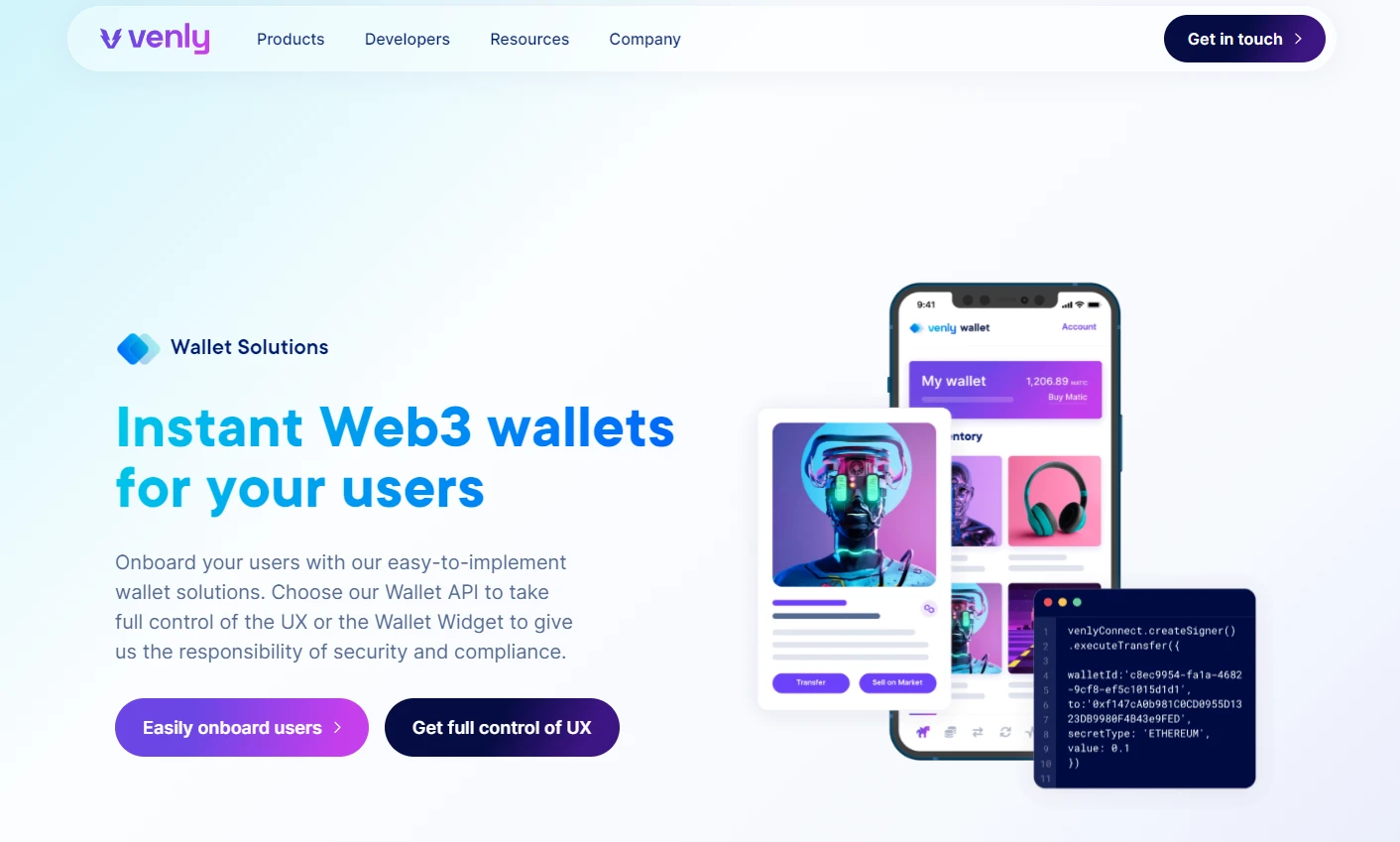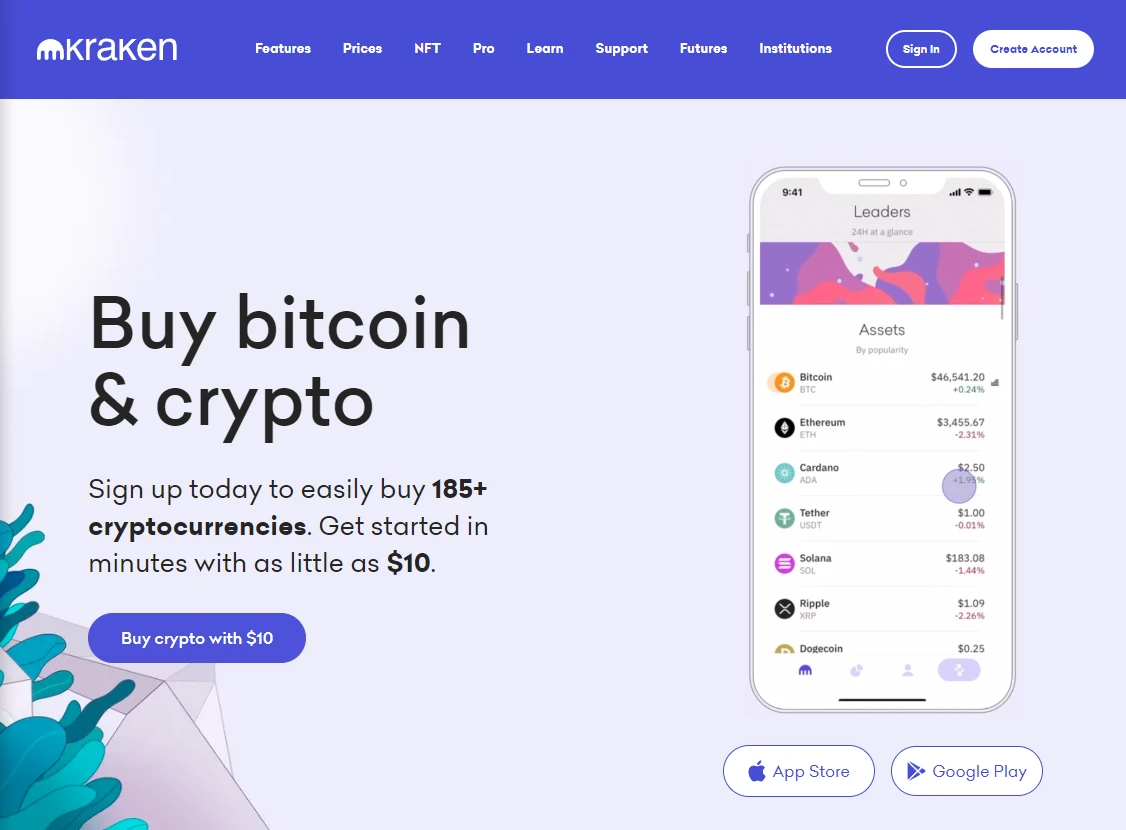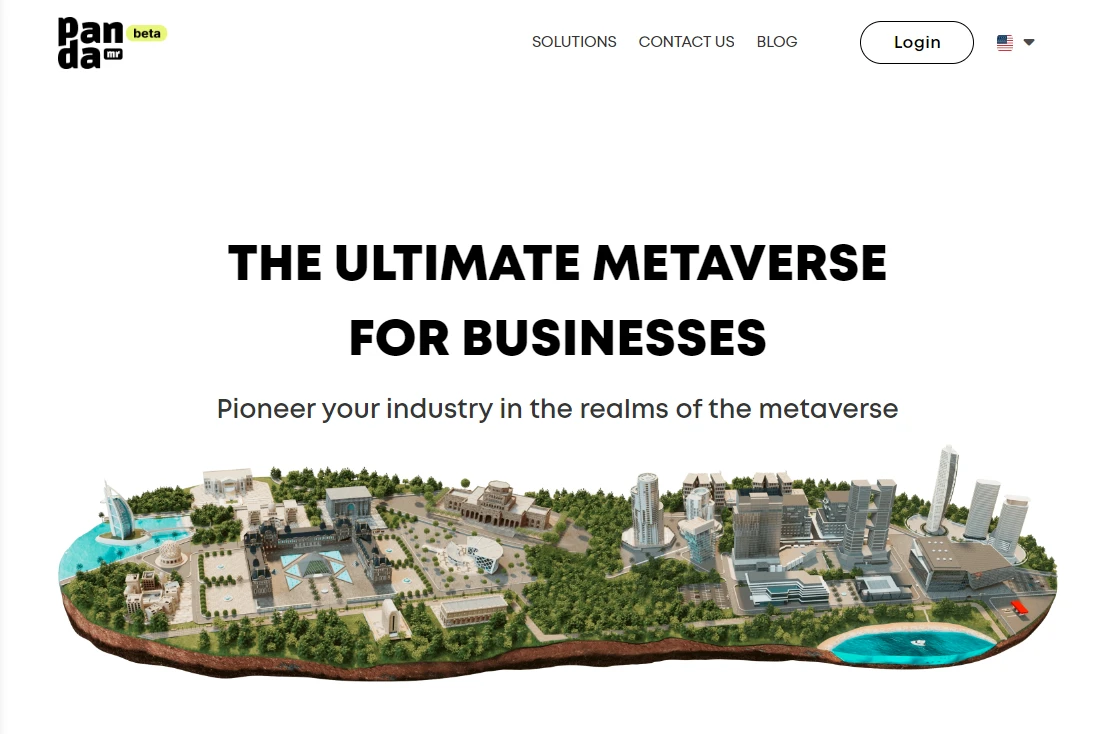MaaS, or Metaverse as a Service, is already allowing companies to establish a presence in decentralized 3D worlds to collaborate, invest, and sell products.
You don’t need much experience to create a metaverse solution. In fact, anyone can benefit from its current infrastructure and engage in the metaverse’s economy without having to make a significant investment. In this guide, we will explain everything you need to know about Metaverse as a Service, its benefits and downsides, and some examples to inspire your next endeavor! Let's get started.
What is Metaverse as a Service (MaaS)?
Metaverse as a Service, or MaaS, is an enterprise solution that lets companies have a presence in 3D collaborative worlds. MaaS is not about building an entirely new metaverse to compete with the more established ones (such as Decentraland, Roblox, or Fortnite) but actually helping organizations gain from the existing infrastructure by developing new products and services.
You can compare MaaS to SaaS (or Software as a Service), as their operations are somewhat similar. For example, Lovelace is an NFT and cryptocurrency platform that helps companies integrate tokens to operate smart contracts, monetize games, and connect different metaverses. In this case, the MaaS organization acts as a decentralized finance (DeFi) service.
There are many other examples we will explore in the sections below, but to simplify things: MaaS can mean offering fashion design services for digital clothes, promoting crypto-wallets that work on different platforms, or even selling architectural replication to bring your shop or organization to a 3D world.
The Potential of the Metaverse
The metaverse is not just one virtual world, but several of them that connect to each other so users can participate and collaborate. In the metaverse, anyone can make friends, work, play games, and build brands. Of course, you can also buy and sell products and services. No single person controls the metaverse, so this digital space is genuinely democratic.
Thanks to MaaS, anyone can develop and strengthen their virtual presence and offer services such as decentralized application management, cryptocurrency services, product design, and much more. We’re just at the beginning of the metaverse journey, so it’s the perfect time to test new ideas!
Metaverse as a Service provides users with a never-seen-before level of configuration, so you don’t have to learn to code and create your own virtual world to develop your brand. Instead, you can offer services that utilize the existing infrastructure to conceive new strategies and dedicated spaces.
Pros and Cons of Metaverse as a Service
Metaverse as a Service solutions offer several benefits to both small and medium-sized companies. The main one is that you can join this economy without needing to spend a lot of money, but there’s more! For instance:
- The metaverse allows 24/7 real-time experiences: No matter what you’re doing in the metaverse, you will do with others and in real-time. Here is also no pause, as anyone can join or leave at any time, and the world will remain the same.
- The metaverse fosters creativity and experimentation: Anyone joining the metaverse can create worlds, experiences, features, and more. Basically, anyone is capable of shaping the world around them, which means businesses can offer a myriad of services and products.
- The metaverse is more immersive: Decentralized virtual worlds allow anyone to socialize, play games, exercise, and run business meetings in a much more engaging manner.
- The metaverse is easy to access: At this point in time, anyone can access the metaverse without needing expensive equipment or gadgets. A smartphone or tablet will work perfectly.
- Developing for the metaverse doesn’t require extensive experience: If you’re a small or mid-size company looking for MaaS opportunities, you don’t need to know how to code or make formidable capital investments. There’s also minimal risk as you’re using existing platforms that have long proven their stability.
Of course, there are also potential downsides to opening Metaverse as a Service business. These include:
- Each metaverse has different requirements: At the time of writing this, there are several metaverses in existence and each has its own rules. The metaverse, aftr al, is not and should not be a one-size-fits-all. This is why MaaS customization is critical, as there will be requirements that are specific to different industries and audiences.
- The metaverse has unique privacy and security issues: We’re familiar with users’ concerns regarding the use of their data. Social media is definitely to blame, as they regularly collect and sell this information to advertisers. In the metaverse, MaaS companies will need to consider users’ concerns and address them appropriately.
Examples of Metaverse as a Service
MaaS is set to drive standardization in the metaverse sector, but there are already several companies offering services. Let’s explore some successful examples, shall we? Just remember: Just because it doesn’t exist yet, it doesn't mean you can’t create it!
Crypto Wallets

Almost anyone joining a metaverse needs the ability to access some kind of cryptocurrency wallet to store their funds. Wallets are an excellent MaaS example because there are several of them people all around the world already use for acquiring digital assets. For instance, Venly Wallet, MetaMask, and Bitski, all of which work from any browser and device, include multi-factor authentication and come with exchange services. Sandbox, for example, supports the three of them, too.
Digital Twin Services
A rising area within the Metaverse as a Service industry is twin design - or the ability to replicate real-world buildings, products, people, and spaces in the metaverse. A digital twin is an exact virtual representation of a physical object (and, in some cases, replications of processes, organizations, and even abstract concepts) that can also be fed real-time data to imitate responses and actions. A digital twin MaaS company can help recreate virtual shops, visualize workspaces, replicate entire workshops or create avatars that look exactly like you. Some companies already offering digital twin consulting include XenoStack, LeewayHertz, and DigitalAgency.

Crypto Exchanges
MaaS companies specializing in crypto coins exchange allow users to buy and sell their assets and trade them on different sites. Some widely used examples include Coinbase, Kraken, Gemini, and Crypto.com. All of these make it extremely easy to create a portfolio, connect various funding methods, and learn about different cryptocurrencies, all from the same place. They also all follow strict regulatory compliance and security verifications.

Business Metaverse Services
Many companies are pioneering business opportunities in the metaverse. Cerebrum Progressus (formerly PandaMR), for example, guides businesses toward creating value in digital 3D spaces. They offer virtual offices and immersive spaces to have a corporate presence in the metaverse and also provide step-by-step guidance to adapt your business model to the technology. Other examples of MaaS companies include Touchcast, which allows organizations to register .metaverse domains to access a virtual reality arena, and MetaVerseBooks, a world where users can shop, go to concerts, and buy real estate.
Metaverse Fashion Development and Art
The fashion business is changing rapidly thanks to the development of the metaverse. Personal expression is particularly important for Gen Z, so many famous brands are already offering virtual clothes and accessories for people to use on their digital personas (one of the first ones to do so was Gucci when they created a Roblox Gucci Garden). In consequence, fashion design for the metaverse is also a MaaS opportunity for companies that want to create 360-degree product visualizations, sell assets as NFTs, and offer wearable clothes for avatars. NFTs are, in fact, also an excellent way to buy and sell art and revolutionize digital ownership.

Metaverse as a Service FAQ
Are you ready to give MaaS a try? Before you jump in, here are some frequently asked questions about Metaverse as a Service that can help clarify some things.
How Do You Serve the Metaverse?
Entering the metaverse can seem a little daunting, but it doesn’t have to be! If you’re looking for new opportunities for your company or project, this guide on How to Enter the Metaverse as a Business can help get you started. Just remember: You don’t need much! Just a good internet connection, a decent computer, and a platform that fits your business model.
Can You Make Money on the Metaverse With No Money?
The short answer is: Sure! The metaverse is not currently owned by a single person or company, so there are no subscription charges you need to worry about. Of course, you will need a device to access metaverse worlds (typically a computer). In some cases, it will help if you purchase real estate to create a space. But if you’re offering MaaS products as a consultant, this is not even a requirement.


